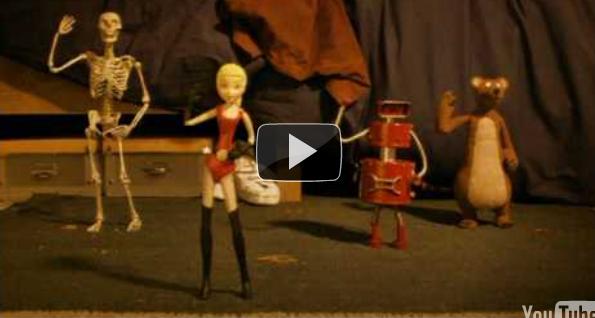
20 Years Have Passed Since 1992 World Scientists’ Warning to Humanity
World Scientists’ Warning to Humanity (1992)
Some 1,700 of the world’s leading scientists, including the majority of Nobel laureates in the sciences, issued this appeal in November 1992. The World Scientists’ Warning to Humanity was written and spearheaded by the late Henry Kendall, former chair of UCS’s board of directors.
Introduction
Human beings and the natural world are on a collision course. Human activities inflict harsh and often irreversible damage on the environment and on critical resources. If not checked, many of our current practices put at serious risk the future that we wish for human society and the plant and animal kingdoms, and may so alter the living world that it will be unable to sustain life in the manner that we know. Fundamental changes are urgent if we are to avoid the collision our present course will bring about.
The environment
The environment is suffering critical stress:
The Atmosphere
Stratospheric ozone depletion threatens us with enhanced ultraviolet radiation at the earth’s surface, which can be damaging or lethal to many life forms. Air pollution near ground level, and acid precipitation, are already causing widespread injury to humans, forests, and crops.
Water Resources
Heedless exploitation of depletable ground water supplies endangers food production and other essential human systems. Heavy demands on the world’s surface waters have resulted in serious shortages in some 80 countries, containing 40 percent of the world’s population. Pollution of rivers, lakes, and ground water further limits the supply.
Oceans
Destructive pressure on the oceans is severe, particularly in the coastal regions which produce most of the world’s food fish. The total marine catch is now at or above the estimated maximum sustainable yield. Some fisheries have already shown signs of collapse. Rivers carrying heavy burdens of eroded soil into the seas also carry industrial, municipal, agricultural, and livestock waste — some of it toxic.
Soil
Loss of soil productivity, which is causing extensive land abandonment, is a widespread by-product of current practices in agriculture and animal husbandry. Since 1945, 11 percent of the earth’s vegetated surface has been degraded — an area larger than India and China combined — and per capita food production in many parts of the world is decreasing.
Forests
Tropical rain forests, as well as tropical and temperate dry forests, are being destroyed rapidly. At present rates, some critical forest types will be gone in a few years, and most of the tropical rain forest will be gone before the end of the next century. With them will go large numbers of plant and animal species.
Living Species
The irreversible loss of species, which by 2100 may reach one-third of all species now living, is especially serious. We are losing the potential they hold for providing medicinal and other benefits, and the contribution that genetic diversity of life forms gives to the robustness of the world’s biological systems and to the astonishing beauty of the earth itself. Much of this damage is irreversible on a scale of centuries, or permanent. Other processes appear to pose additional threats. Increasing levels of gases in the atmosphere from human activities, including carbon dioxide released from fossil fuel burning and from deforestation, may alter climate on a global scale. Predictions of global warming are still uncertain — with projected effects ranging from tolerable to very severe — but the potential risks
are very great.
Our massive tampering with the world’s interdependent web of life — coupled with the environmental damage inflicted by deforestation, species loss, and climate change — could trigger widespread adverse effects, including unpredictable collapses of critical biological systems whose interactions and dynamics we only imperfectly understand.
Uncertainty over the extent of these effects cannot excuse complacency or delay in facing the threats.
Population
The earth is finite. Its ability to absorb wastes and destructive effluent is finite. Its ability to provide food and energy is finite. Its ability to provide for growing numbers of people is finite. And we are fast approaching many of the earth’s limits. Current economic practices which damage the environment, in both developed and underdeveloped nations, cannot be continued without the risk that vital global systems will be damaged beyond repair.
Pressures resulting from unrestrained population growth put demands on the natural world that can overwhelm any efforts to achieve a sustainable future. If we are to halt the destruction of our environment, we must accept limits to that growth. A World Bank estimate indicates that world population will not stabilize at less than 12.4 billion, while the United Nations concludes that the eventual total could reach 14 billion, a near tripling of today’s 5.4 billion. But, even at this moment, one person in five lives in absolute poverty without enough to eat, and one in ten suffers serious malnutrition.
No more than one or a few decades remain before the chance to avert the threats we now confront will be lost and the prospects for humanity immeasurably diminished.
Warning
We the undersigned, senior members of the world’s scientific community, hereby warn all humanity of what lies ahead. A great change in our stewardship of the earth and the life on it is required, if vast human misery is to be avoided and our global home on this planet is not to be irretrievably mutilated.
What we must do
Five inextricably linked areas must be addressed simultaneously:
We must bring environmentally damaging activities under control to restore and protect the integrity of the earth’s systems we depend on.
We must, for example, move away from fossil fuels to more benign, inexhaustible energy sources to cut greenhouse gas emissions and the pollution of our air and water. Priority must be given to the development of energy sources matched to Third World needs — small-scale and relatively easy to implement.
We must halt deforestation, injury to and loss of agricultural land, and the loss of terrestrial and marine plant and animal species.
We must manage resources crucial to human welfare more effectively.
We must give high priority to efficient use of energy, water, and other materials, including expansion of conservation and recycling.
We must stabilize population.
This will be possible only if all nations recognize that it requires improved social and economic conditions, and the adoption of effective, voluntary family planning.
We must reduce and eventually eliminate poverty.
We must ensure sexual equality, and guarantee women control over their own reproductive decisions.
Developed Nations Must Act Now
The developed nations are the largest polluters in the world today. They must greatly reduce their overconsumption, if we are to reduce pressures on resources and the global environment. The developed nations have the obligation to provide aid and support to developing nations, because only the developed nations have the financial resources and the technical skills for these tasks.
Acting on this recognition is not altruism, but enlightened self-interest: whether industrialized or not, we all have but one lifeboat. No nation can escape from injury when global biological systems are damaged. No nation can escape from conflicts over increasingly scarce resources. In addition, environmental and economic instabilities will cause mass migrations with incalculable consequences for developed and undeveloped nations alike.
Developing nations must realize that environmental damage is one of the gravest threats they face, and that attempts to blunt it will be overwhelmed if their populations go unchecked. The greatest peril is to become trapped in spirals of environmental decline, poverty, and unrest, leading to social, economic, and environmental collapse.
Success in this global endeavor will require a great reduction in violence and war. Resources now devoted to the preparation and conduct of war — amounting to over $1 trillion annually — will be badly needed in the new tasks and should be diverted to the new challenges.
A new ethic is required — a new attitude towards discharging our responsibility for caring for ourselves and for the earth. We must recognize the earth’s limited capacity to provide for us. We must recognize its fragility. We must no longer allow it to be ravaged. This ethic must motivate a great movement, convincing reluctant leaders and reluctant governments and reluctant peoples themselves to effect the needed changes.
The scientists issuing this warning hope that our message will reach and affect people everywhere. We need the help of many.
- We require the help of the world community of scientists — natural, social, economic, and political.
- We require the help of the world’s business and industrial leaders.
- We require the help of the world’s religious leaders.
- We require the help of the world’s peoples.
We call on all to join us in this task.
Complete list of signatures available at http://www.deoxy.org/sciwarn.htm
Union of Concerned Scientists, 96 Church Street, Cambridge, Mass 02238-9105,
USA
Union of Concerned Scientists
Phone – 617-547-5552 Fax – 617-864-9405










